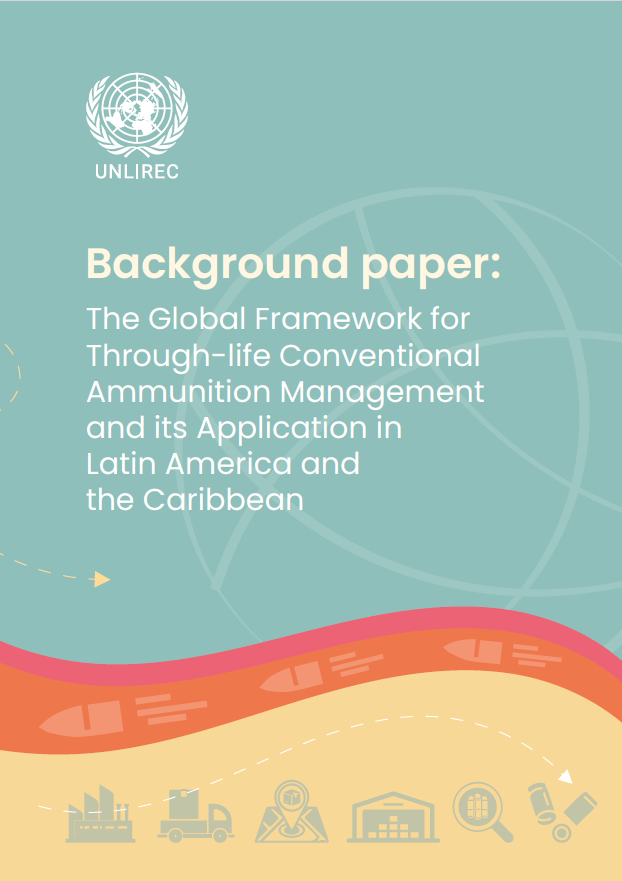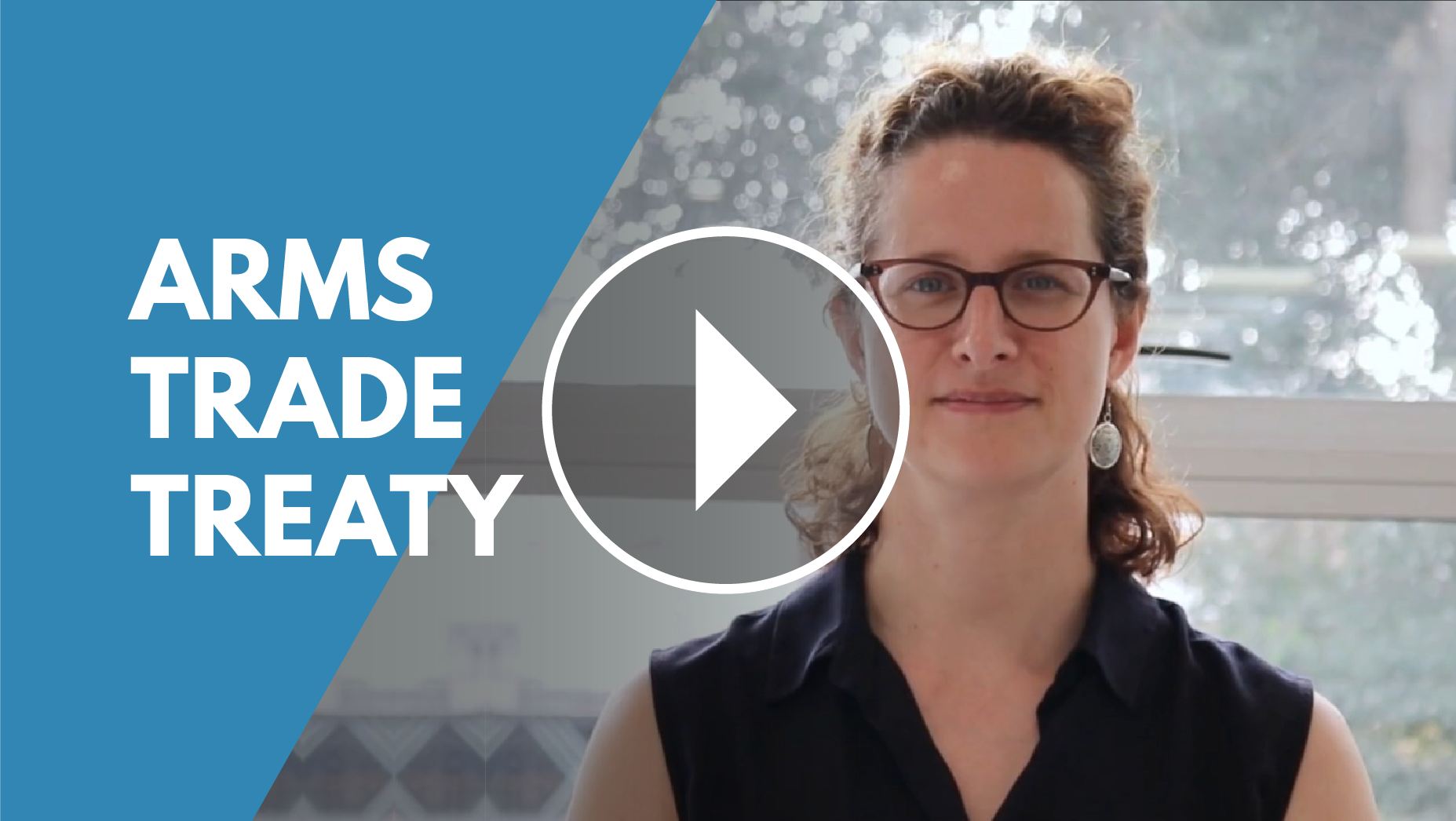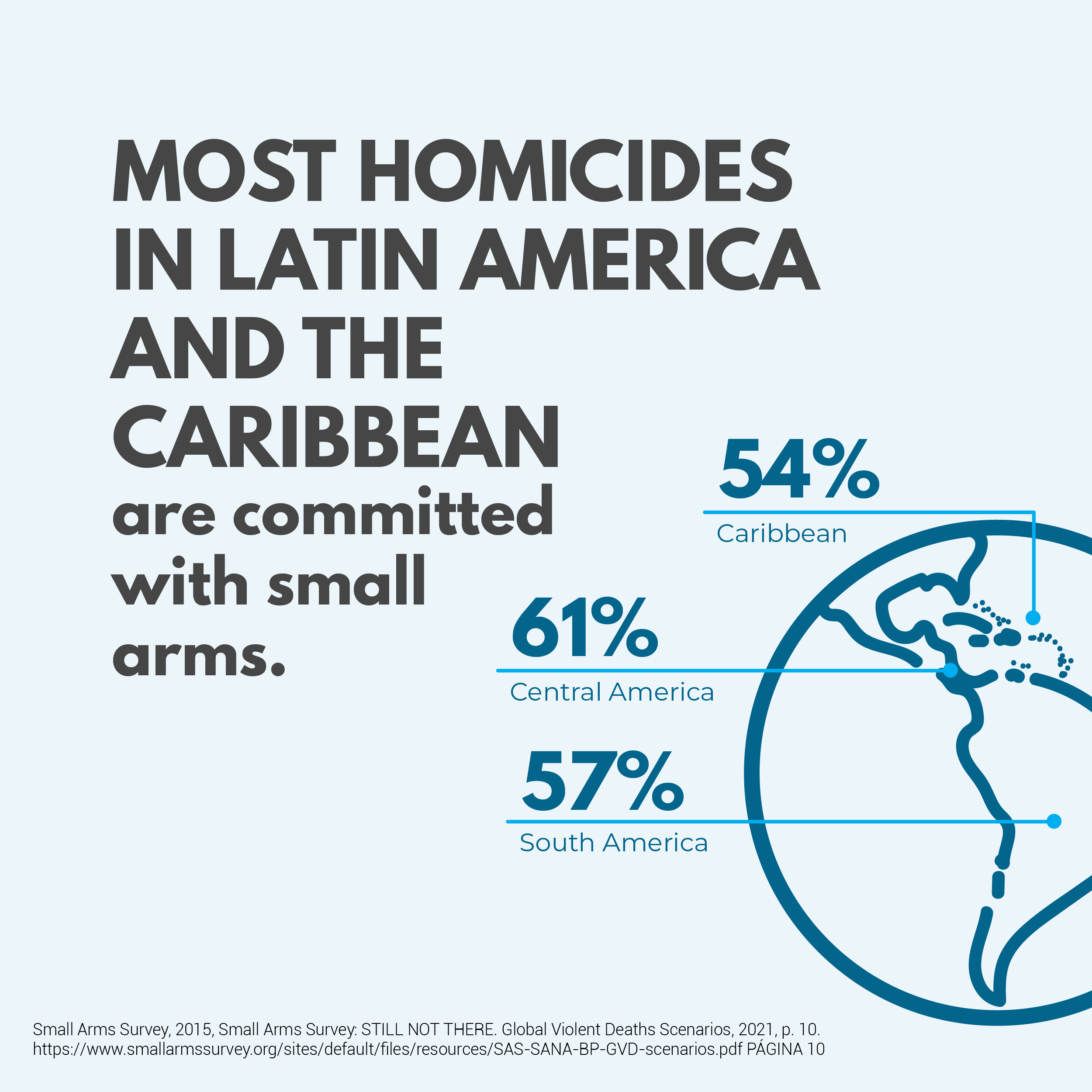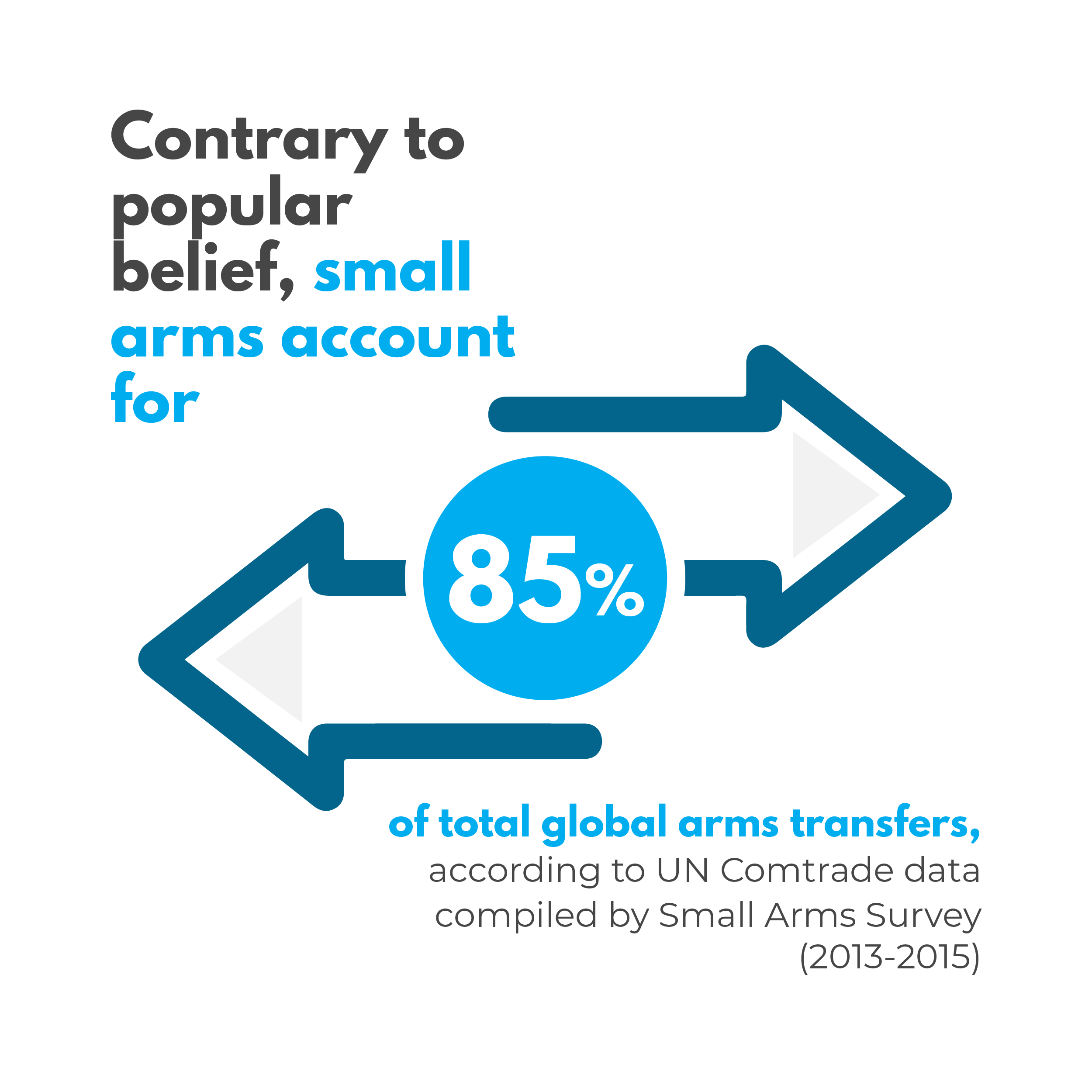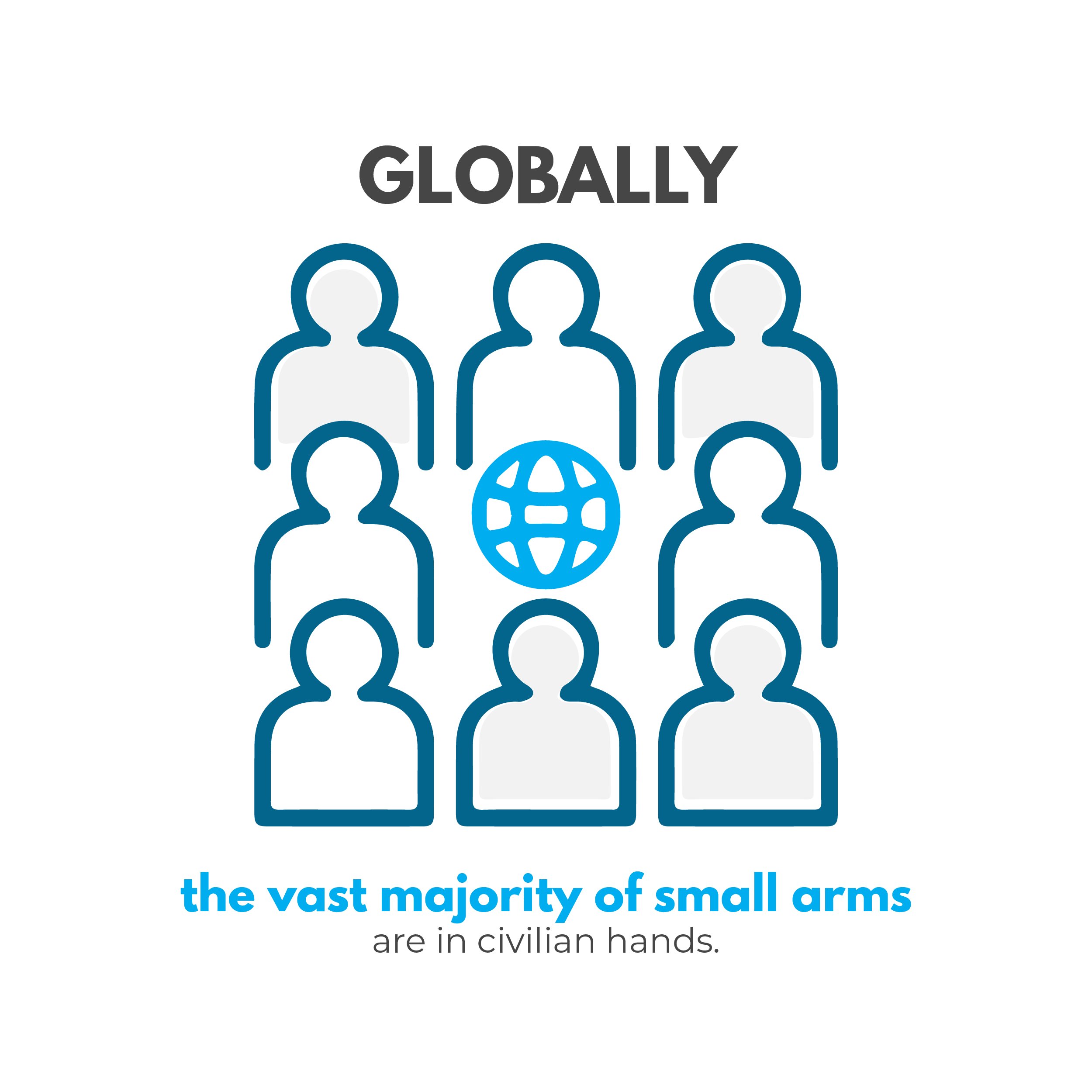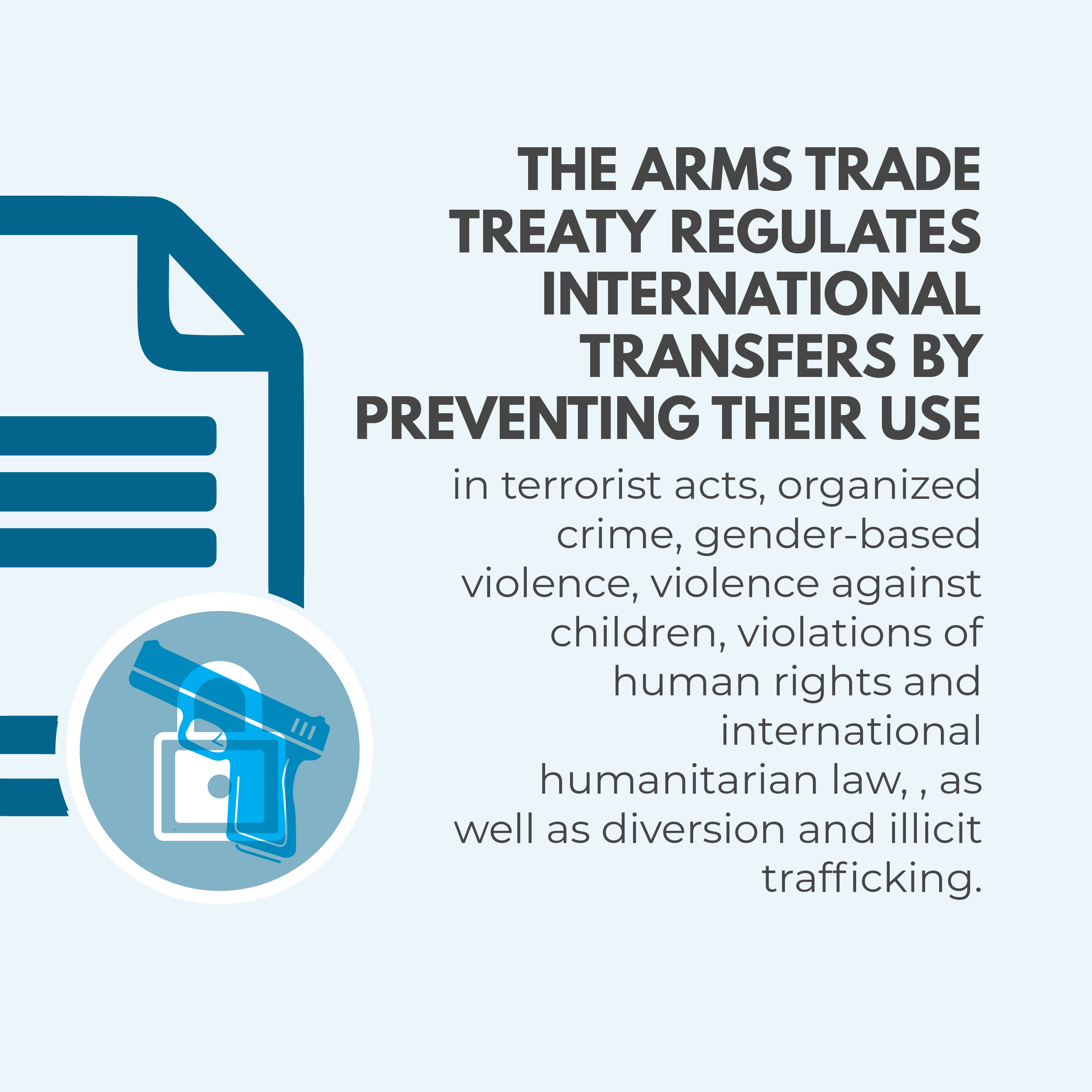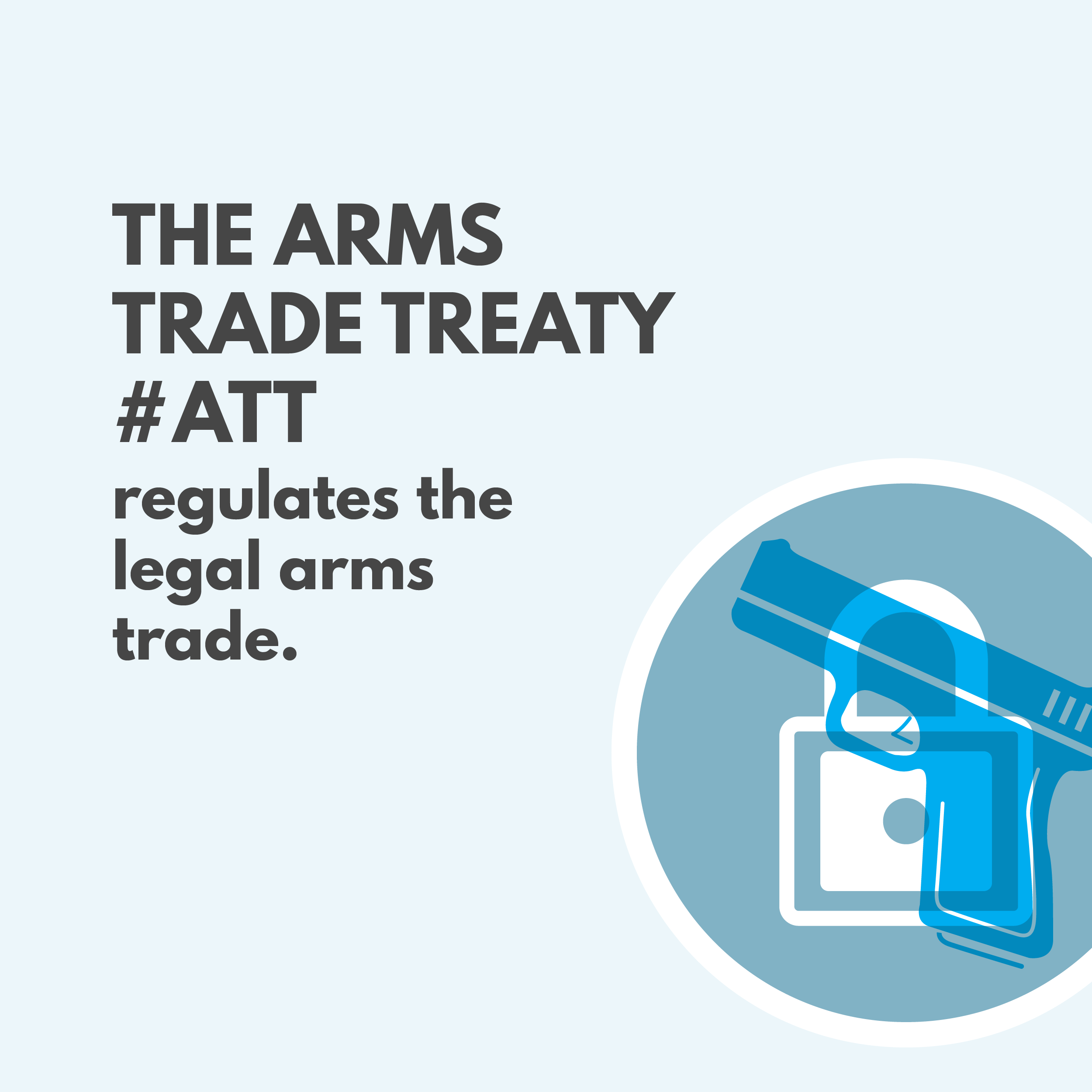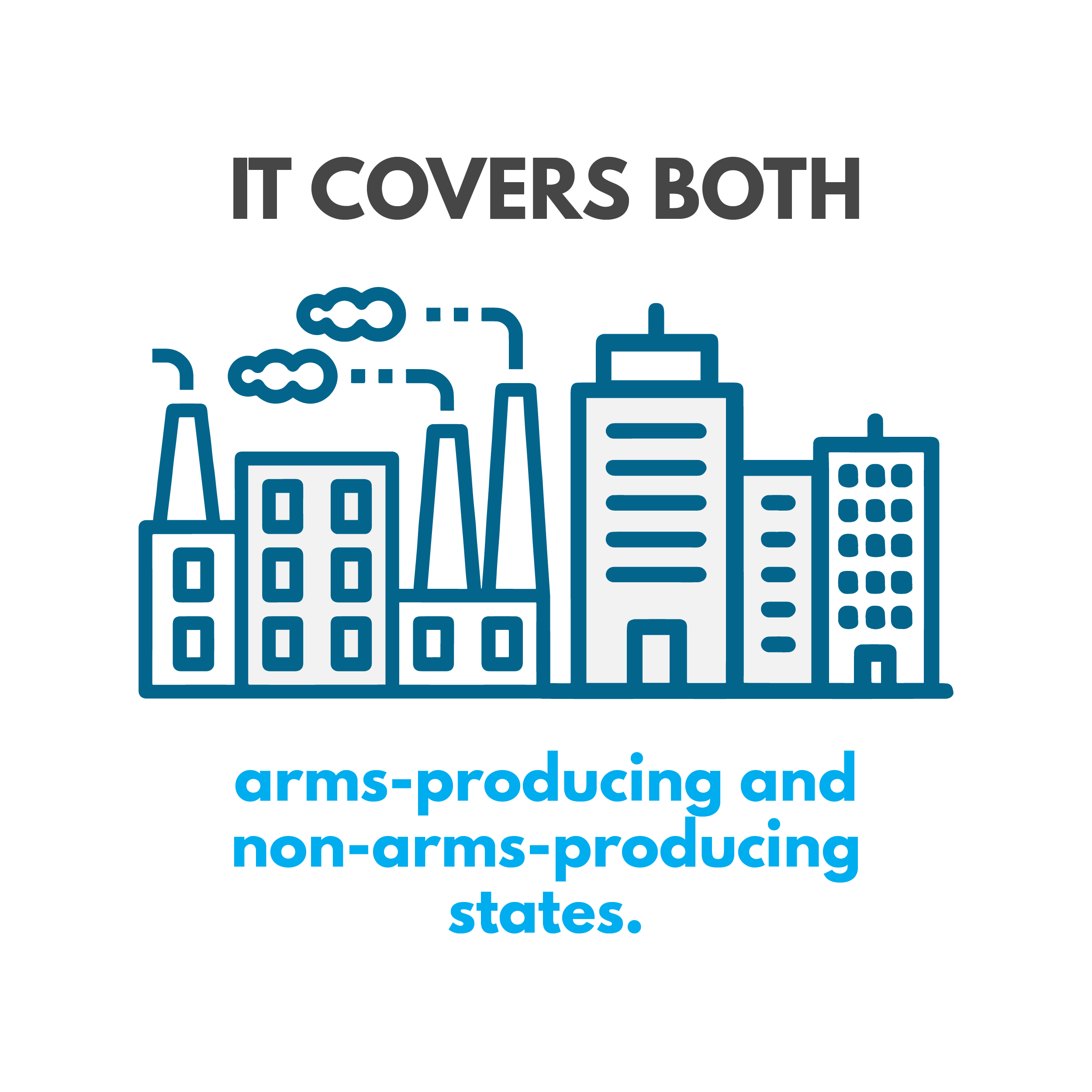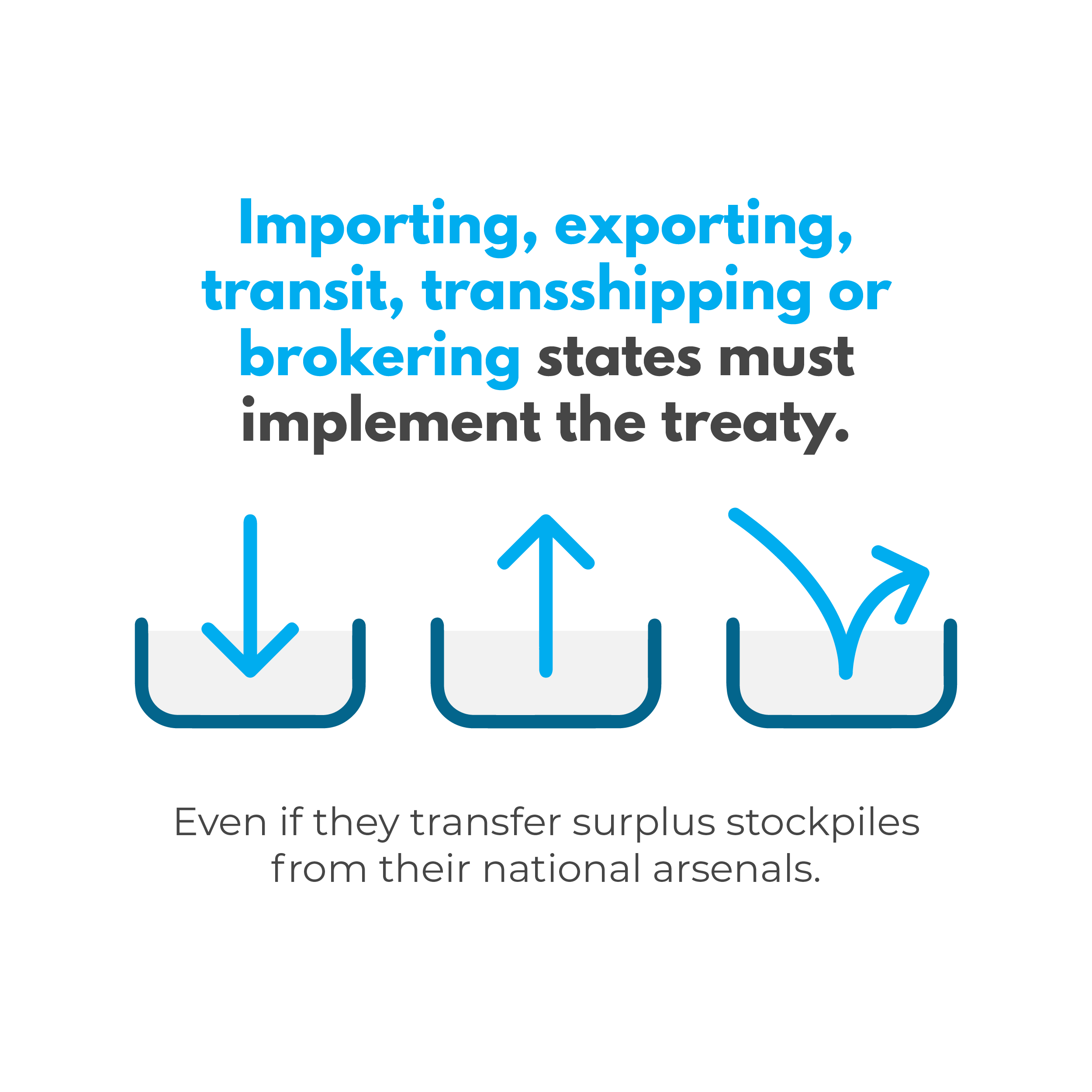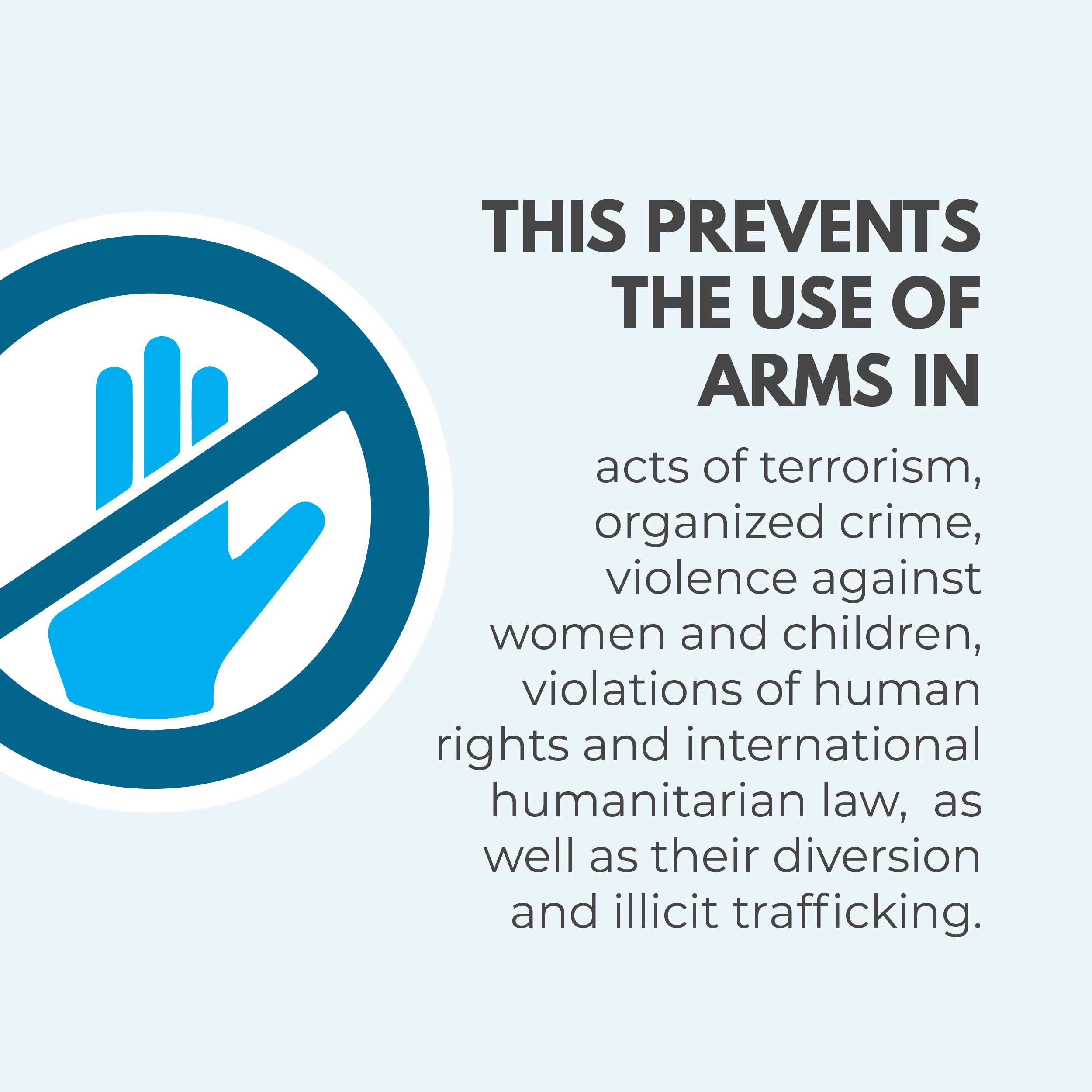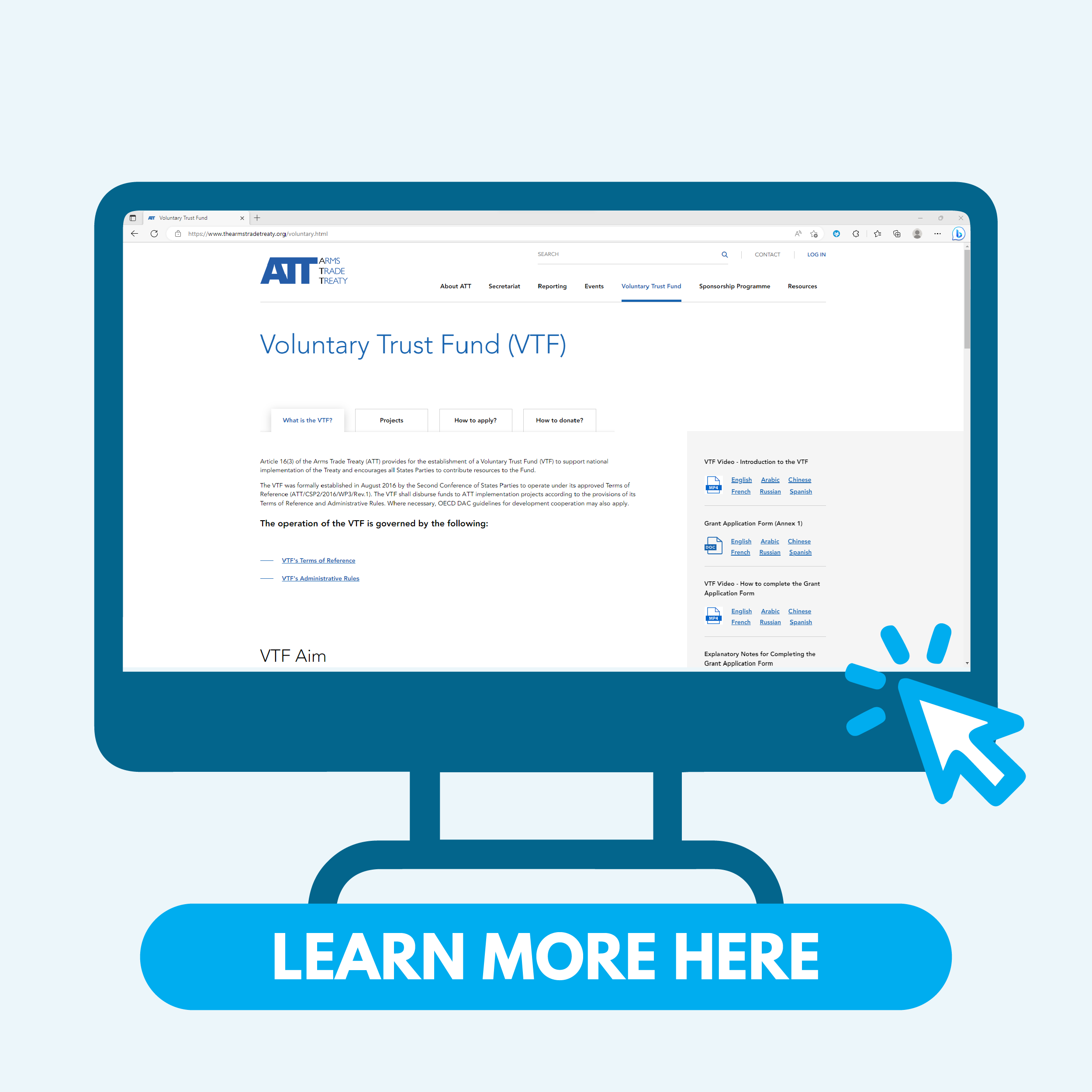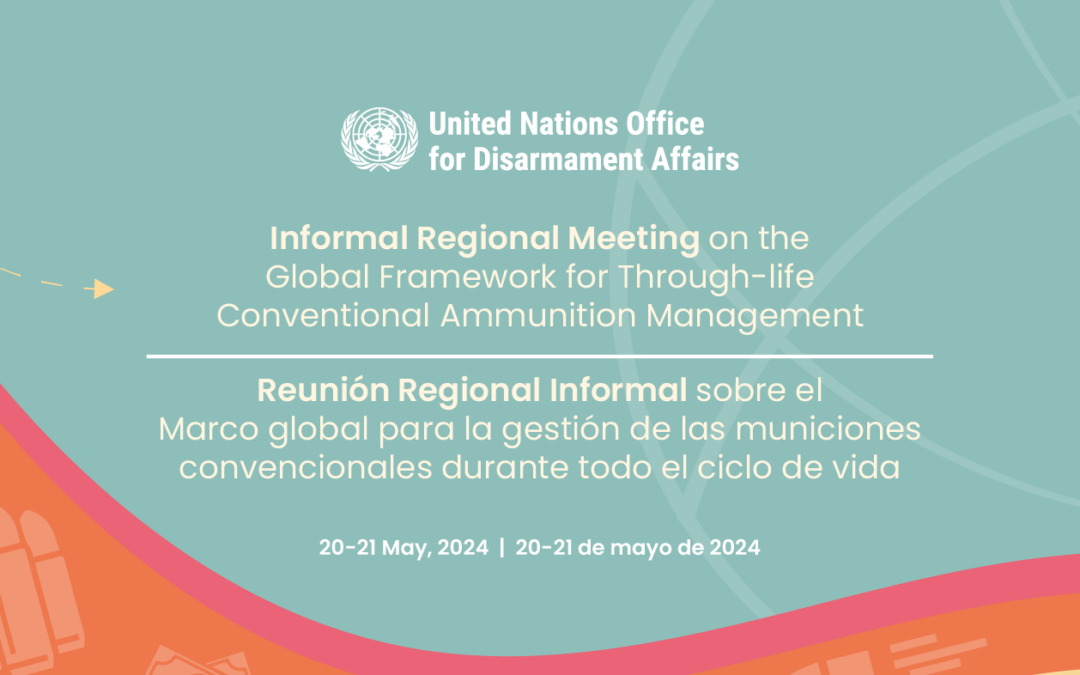
May 20, 2024 | Uncategorized
Lima, Peru, 20-21 May 2024 – Representatives from Latin American and Caribbean States, UN entities, and regional and non-governmental organizations gather to discuss the implementation of the Global Framework for Through-life Conventional Ammunition Management.
Global Framework for Through-life
Conventional Ammunition Management
Background paper: The Global Framework for Through-life Conventional Ammunition Management and its Application
in Latin America and the Caribbean
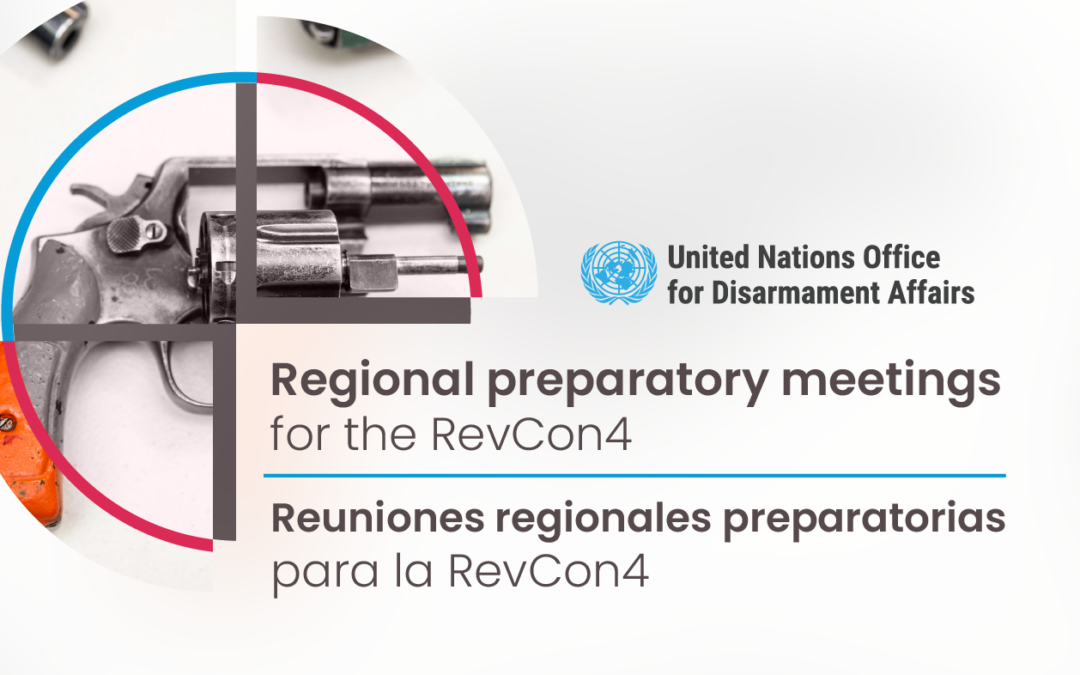
Mar 8, 2024 | Uncategorized
In preparation for the fourth Review Conference (RevCon4) on the Programme of Action to Prevent, Combat and Eradicate the Illicit Trade in Small Arms and Light Weapons in All Its Aspects (PoA), States from Latin America and the Caribbean gather to discuss regional priorities as well as challenges and opportunities to combat small arms trafficking.
Latin American States will convene between 11 to 15 March 2024, Caribbean States are invited to commence their preparations from 18 to 22 March 2024. Both meetings will take place virtually.
11-15 March 2024 | Latin American States
18-22 March 2024 | Caribbean States
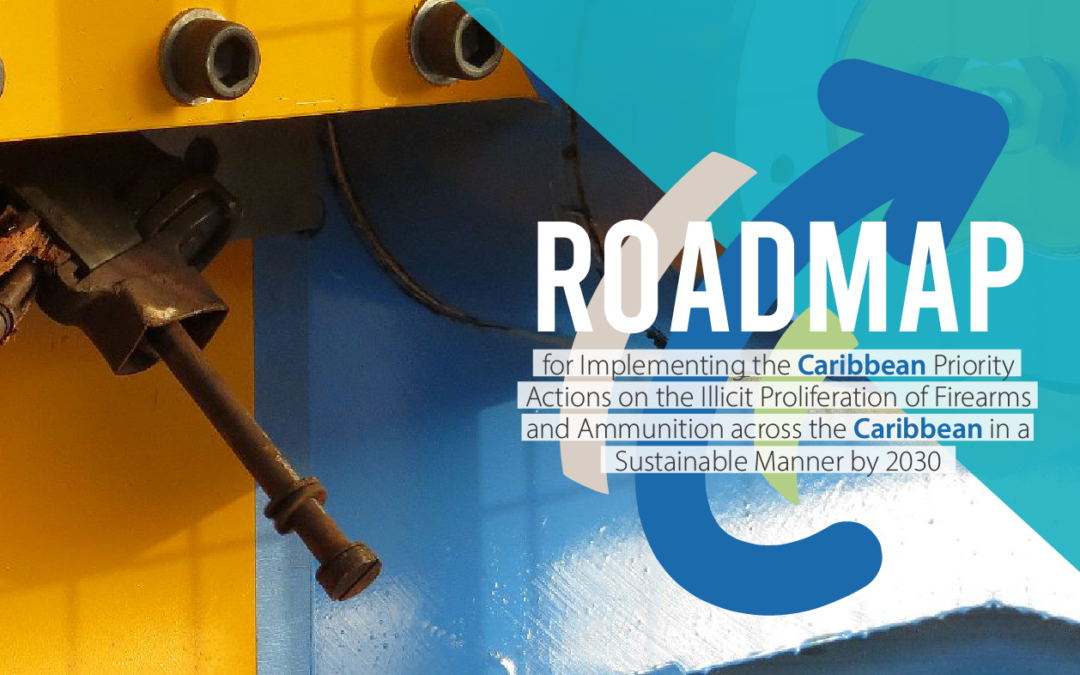
Nov 6, 2023 | Uncategorized
From 14 to 15 November 2023, officials from the Caribbean Community (CARICOM) and the Dominican Republic will gather in Saint Lucia for the 3rd Annual Meeting of States of the Caribbean Firearms Roadmap.
For the first time since the adoption of the Caribbean Firearms Roadmap in 2020, States, together with partners and donors from the international community, will meet in-person to discuss the implementation of the Roadmap and renew their commitment addressing illicit firearms and ammunition trafficking.
The meeting is organized by the CARICOM Implementation Agency for Crime and Security (IMPACS) and the United Nations Regional Centre for Peace, Disarmament and Development in Latin America and the Caribbean (UNLIREC) in collaboration with the government of Saint Lucia.
The meeting, which is funded by Canada, envisages a one-day working level exchange between national focal points established under the Caribbean Firearms Roadmap as well as a high-level meeting of Ministers on 15 November.
For further information please contact secretary@unlirec.org.
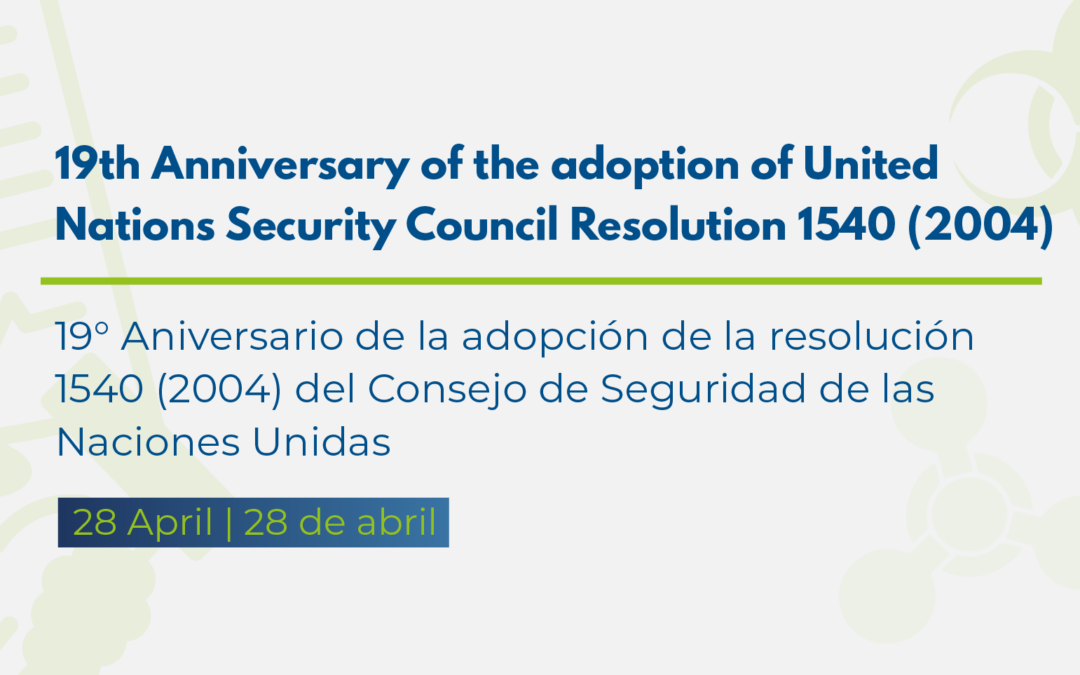
Apr 20, 2023 | Uncategorized
Resolution 1540 (2004) was adopted on 28 April 2004 by the United Nations Security Council against a backdrop of growing concern by the international community regarding the proliferation of weapons of mass destruction (WMD) by non-state actors, and the threat posed to international peace and security.
With this in mind, resolution 1540 (2004) establishes a series of obligations for States to address this challenge and prevent the proliferation of WMDs and their means of delivery, and the illicit trafficking of related materials, by non-state actors, including terrorist organisations.
UNLIREC reiterates the importance of resolution 1540 (2004), and its full and effective implementation by all States. Furthermore, UNLIREC encourages the active participation of the private sector, scientific community and academia to join in these efforts.
What are the main obligations contained in resolution 1540 (2004)?
Resolution 1540 (2004) mandates States to refrain from providing support to non-state actors in the development, acquisition, manufacture, possession (etc.) of WMDs and their means of delivery. In order for resolution 1540 to be effectively implemented, States must also ensure that their legal frameworks prohibit the aforementioned activities.
In addition to this, States must establish national controls on related materials and dual-use goods, which are items that have legitimate and peaceful uses but which can also be used to develop WMD.
It is important that the private sector, scientific community and academia be aware of the risks involved in the trade and use of dual-use goods, and the importance of adequate controls.
Learn more about dual-use goods
Why is resolution 1540 important for Latin American and Caribbean States?
Resolution 1540 (2004) complements and reinforces existing treaties on disarmament and non-proliferation of WMDs, such as: the Biological Weapons Convention, the Chemical Weapons Convention, the Treaty on the Non-Proliferation of Nuclear Weapons, the Treaty on the Prohibition of Nuclear Weapons and the Treaty for the Prohibition of Nuclear Weapons in Latin America and the Caribbean (Treaty of Tlatelolco).
Moreover, this is the first time that the Security Council defined the proliferation of chemical, biological and nuclear weapons as a threat to international peace and security, in particular the risk posed by non-state actors acquiring such weapons.

No State is immune to the risk posed by the use or threat of use of WMD, or potential criminal activities by non-State actors, including terrorist organizations.
It is also important to note that countries in the region have industries that produce, assemble, export, import, transport and use dual-use materials. States are therefore responsible for ensuring that said goods and technologies are not diverted for the development of WMDs. It is important that States actively participate and cooperate in the international community’s non-proliferation initiatives.
What is the work of the 1540 Committee and its Group of Experts?
The 1540 Committee and its Group of Experts monitor the implementation of resolution 1540 (2004). They facilitate cooperation and technical assistance towards its effective implementation.
What role do regional and sub-regional international organisations play in the implementation of the resolution?
International, regional and subregional organizations play a fundamental role in the implementation of resolution 1540 (2004).
UNLIREC, as a United Nations regional centre specialized in disarmament and non-proliferation in Latin America and the Caribbean, supports national and regional efforts aimed at the effective implementation of this resolution and, therefore, the prevention of the proliferation of WMDs in the region.
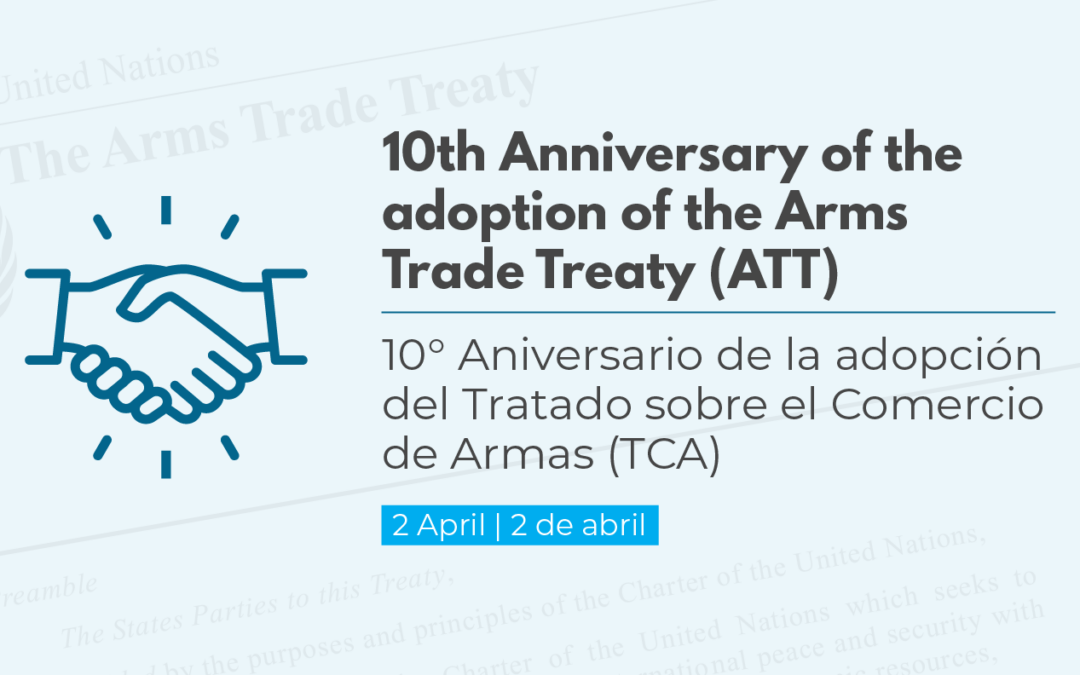
Apr 1, 2023 | Uncategorized
The Arms Trade Treaty aims to regulate the international trade in conventional arms, as well as to prevent and eliminate their illicit trafficking and diversion.
The Treaty was adopted on 2 April 2013 and entered into force on 24 December 2014.
UNLIREC is launching this campaign to promote its universalization and highlight the importance of its effective implementation by all States Parties.
What are the main provisions of the Arms Trade Treaty?
The ATT establishes prohibitions on the transfer of arms, ammunition, parts and components when there is a possibility that they may be used to commit acts of genocide, crimes against humanity, attacks against civilian objects or persons, or other war crimes, among others.
In addition, States must evaluate each export and determine whether there is a risk that the arms, ammunition, parts and components could be used to commit serious violations of International Humanitarian Law or Human Rights, acts of terrorism, organized crime, or serious acts of gender-based violence or violence against women and children, and if so, deny such export.
Why is this Treaty important?
It is estimated that the financial value of the global arms trade in 2020 was at least $112 billion, and according to UN Comtrade data compiled by the Small Arms Survey, 85% of global transfers were of small arms, which are used to commit the majority of homicides. In Latin America and the Caribbean, the percentage of homicides committed with small arms is estimated at 61% in Central America, 54% in the Caribbean and 57% in South America. The Arms Trade Treaty promotes the responsibility of States in international transfers of conventional arms, establishing prohibitions on transfers of these weapons in certain cases, as well as the obligation to conduct a risk assessment of each export.
According to the Arms Trade Treaty, what are international transfers?
International transfers are export, import, transit, transshipment and intermediation, for which States must adopt control measures.
Do the provisions contained in the ATT only apply to manufacturing countries?
No. The Arms Trade Treaty provides for the obligation to establish appropriate measures to regulate international arms transfers, and therefore reaches all States involved in such transfers. Each exporting State must evaluate each export operation, including re-exports of items not manufactured in the country.
What is the ATT Voluntary Trust Fund (VTF)?
Every year, States Parties may apply to the Voluntary Fund to obtain financial support for the implementation of the Treaty.


![Website [Recuperado]-21](https://unlirec.org/wp-content/uploads/Website-Recuperado-21.png)
![Website [Recuperado]-05](https://unlirec.org/wp-content/uploads/Website-Recuperado-05.png)
![Website [Recuperado]-18](https://unlirec.org/wp-content/uploads/Website-Recuperado-18.png)


